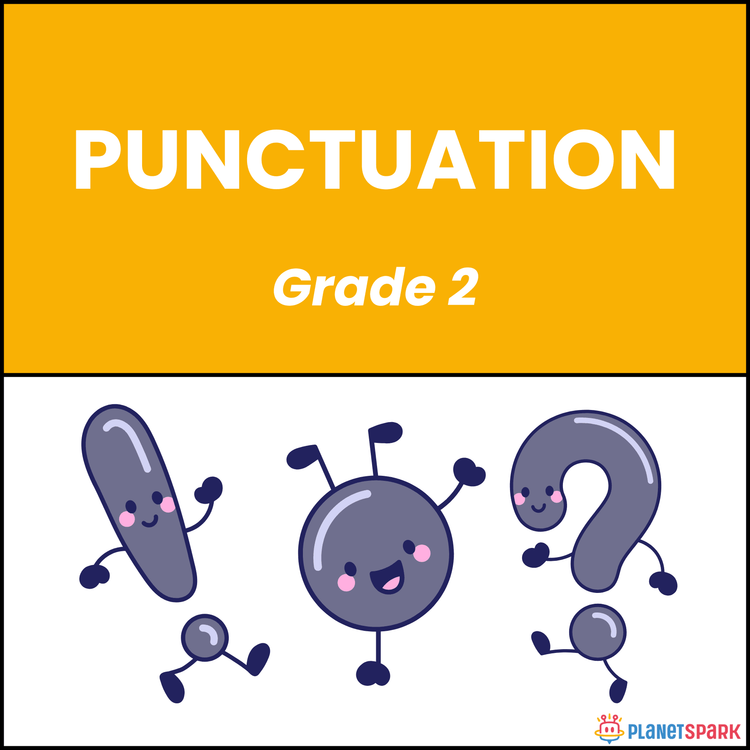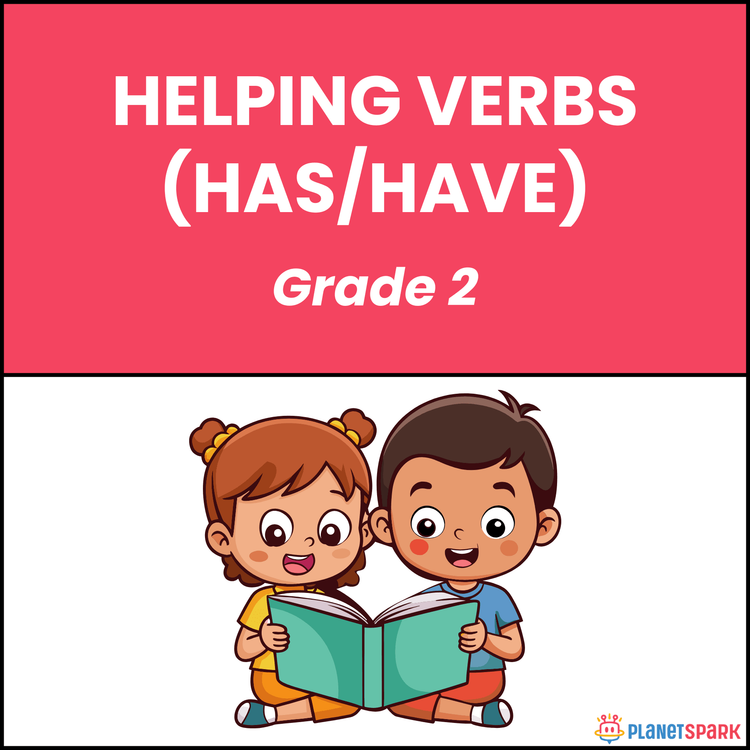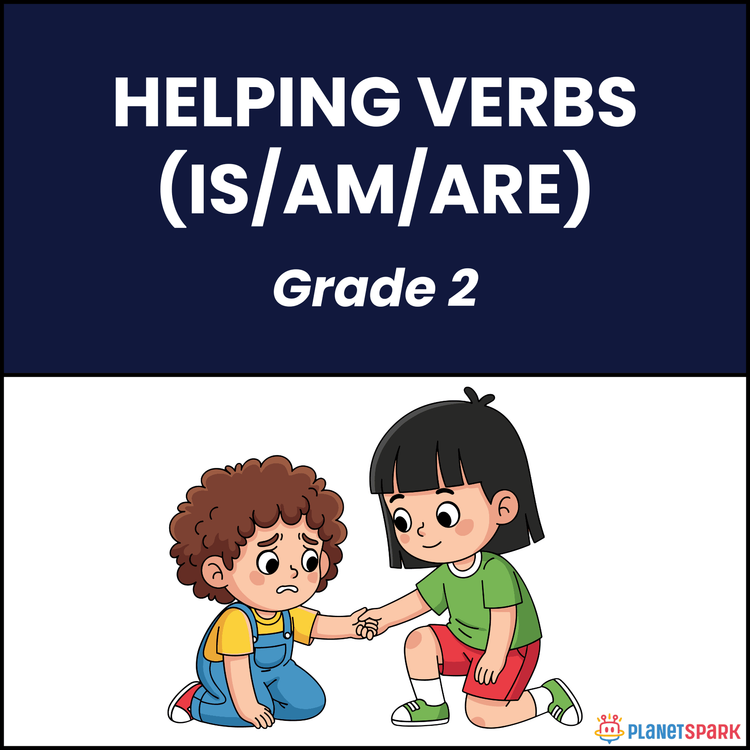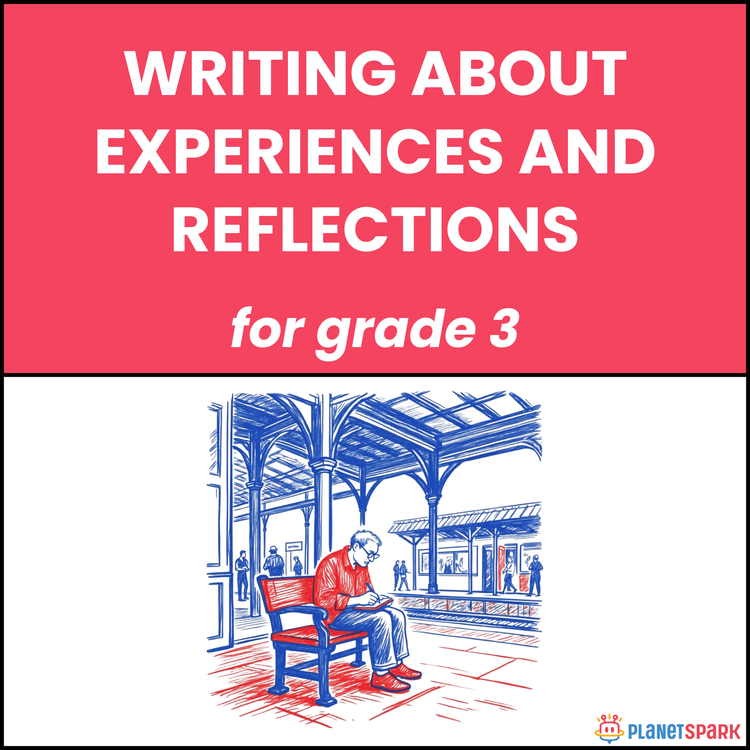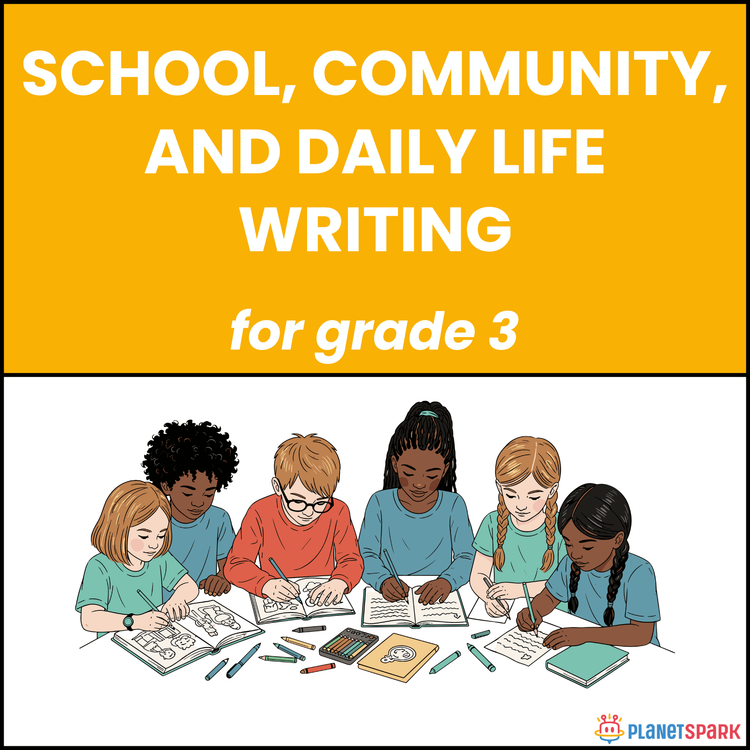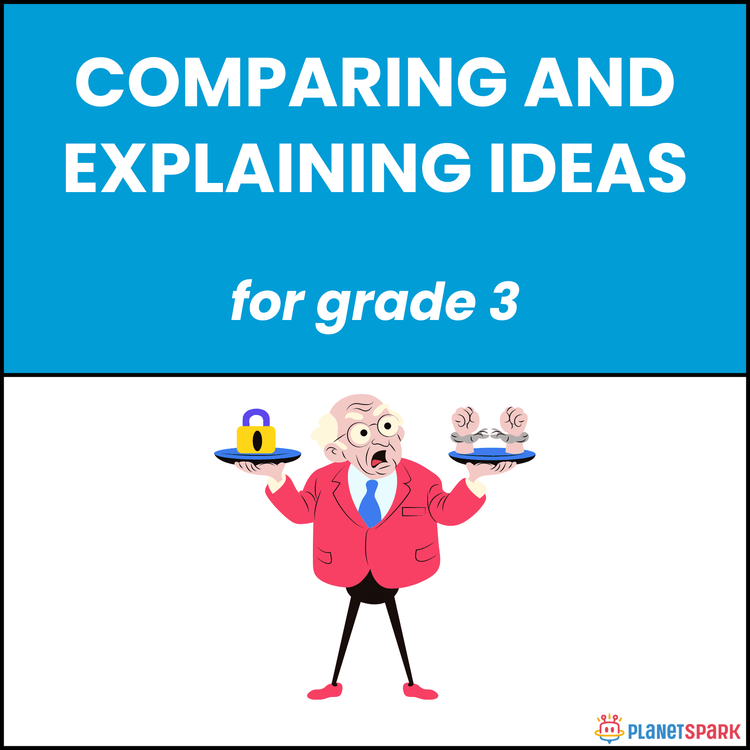Grade 2 Reading Passage: The Bear and the Two Friends
Class 2Free DownloadPDF
Simarpreet KaurVisit Profile
I am a dedicated and student-focused educator with over 5 years of experience teaching. Currently, I am working as a teacher at Planet Spark. I love teaching at Planet Spark because the interactive, one-on-one teaching format and curriculum quality, that’s easy to follow and effective.
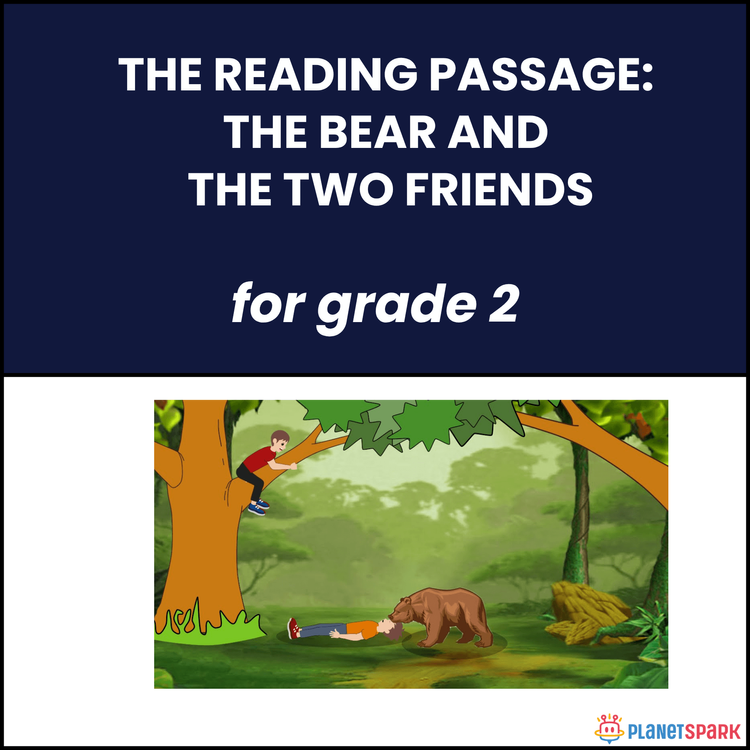

Grade 2 Reading Passage: The Bear and the Two Friends
Class 2Free DownloadPDF
Simarpreet KaurVisit Profile
I am a dedicated and student-focused educator with over 5 years of experience teaching. Currently, I am working as a teacher at Planet Spark. I love teaching at Planet Spark because the interactive, one-on-one teaching format and curriculum quality, that’s easy to follow and effective.
True Friends Stay: The Bear and the Two Friends Reading Comprehension for Grade 2
This Grade 2 reading comprehension worksheet, *“True Friends Stay: The Bear and the Two Friends,”* teaches children about courage, loyalty, and the true meaning of friendship. The story follows two friends walking through a forest when a bear suddenly appears. One friend quickly climbs a tree to save himself, leaving the other behind. The second friend lies still on the ground, pretending to be dead. The bear sniffs him and walks away. Later, the friend from the tree asks what the bear said, and the second friend replies, “The bear told me not to trust friends who leave you in danger.” Through this short fable, students learn that true friendship means staying together even in tough times.
Why Reading Comprehension Matters in Grammar?
Reading comprehension helps children connect story events with emotions and moral understanding. For Grade 2 learners, this story is valuable because:
1. It teaches empathy, trust, and emotional awareness.
2. It builds reading fluency and sequence recognition.
3. It encourages reflection on friendship and kindness.
4. It improves vocabulary through descriptive storytelling.
What’s Inside This Worksheet?
Exercise 1 – Multiple Choice Questions
Students answer factual questions about the friends, the bear, and the lesson learned.
Exercise 2 – Comprehension Questions
Students describe what happened, how the friends reacted, and what the moral of the story means in their own words.
✅ Answer Key (For Parents & Educators)
Exercise 1 – Choose the Correct Answer
1. a) A bear
2. b) Climbed a tree
3. d) Pretended to be dead
4. b) It cannot see dead people
5. c) True friendship means helping in danger
6. d) Ashamed
Exercise 2 – Answer the Following Questions
7. The first friend climbed a tree and left his friend behind.
8. True friendship is important because friends help each other in danger.
9. The second friend pretended to be dead to escape.
10. For example, helping a friend who falls while cycling.
Help your child understand loyalty, bravery, and kindness through this *Bear and the Two Friends* reading comprehension worksheet!
🔖Book a free trial!
Frequently Asked Questions
They teach children to recognize true loyalty, evaluate relationships, and understand supportive behavior through stories.
Yes, they encourage children to analyze character decisions, predict consequences, and apply lessons to real life.
Absolutely, they present meaningful values through simple language and relatable situations that engage young minds.
